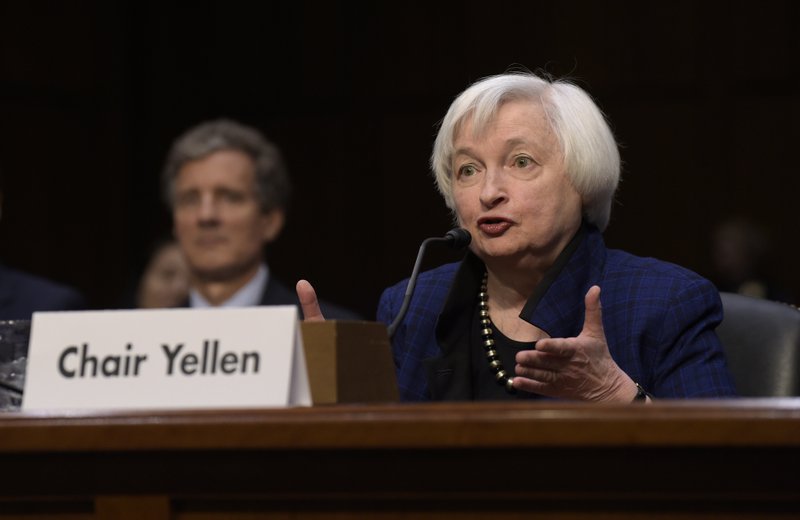WASHINGTON -- The first three weeks of Donald Trump's presidency have left political leaders divided and uncertain about what happens next.
This week, it will be Federal Reserve Chairman Janet Yellen's turn to weigh in -- if she chooses to -- on how the economy could fare in the early months of Trump's administration.
Are Trump's proposed tax cuts, stimulus spending, trade tariffs and deregulation the right economic recipe? And does Yellen see the Fed raising rates three times this year, as the central bank in December forecast it would?
Few expect clear-cut answers from the Fed chairman's semiannual testimony to Congress -- first to a Senate committee today and then to a House panel Wednesday. The official topic will be, as always, the outlook for the economy and the Fed's interest rate policy. But Yellen will surely be asked whether she thinks Trump's program will more likely accelerate or weaken the economy.
In part because of uncertainty over the forthcoming details of Trump's economic plans, investors expect the Fed to leave rates alone for the next few months, perhaps until its June meeting. Even after Trump's proposals are spelled out, uncertainty will swirl around how well they will survive intact through Congress.
"A lot of what the Federal Reserve will do this year will depend on what President Trump and Congress do, and at the moment we have no idea what will emerge from Congress," said Mark Zandi, chief economist at Moody's Analytics. "Until there is some clarity about what President Trump and Congress have in mind, I think the Fed is going to be cautious."
In December, the Fed modestly raised its benchmark short-term rate to a range of 0.5 percent to 0.75 percent, its first increase since December 2015. Until then, the Fed had left its key rate unchanged at a record low near zero for seven years to energize an economy pummeled by the most severe recession in decades. In December, the Fed also forecast that it would raise rates three times in 2017.
After it met again early this month, the Fed issued a statement that noted improved sentiment among consumers and businesses. And the Fed said it had become more confident that inflation will reach its 2 percent target. But it offered no hints about when it would resume raising rates.
Many economists caution that the pace of rate increases could change quickly depending on how much success Trump has in getting his economic initiatives enacted. The president is expected to formally present his program in the coming weeks, offering tax cuts for individuals and businesses and increased spending on infrastructure projects and a rollback of government regulations.
Trump has said his goal is to double economic growth, as measured by the gross domestic product, from the lackluster 2 percent annual rate that's prevailed since the recession ended in 2009 to a robust 4 percent rate or better. Comments he made late last week reiterating his commitment to major tax relief helped drive up stock indexes to record highs.
But Fed officials could grow concerned that a big stimulus package at this stage of the recovery, with job growth solid and unemployment below 5 percent, might overheat the economy and trigger unwanted inflation pressures. If that were to happen, the central bank could decide to accelerate its rate increases.
"The Fed has been pretty consistent that it wants the rate increases to come at a gradual pace, but that could change if Fed officials believe the budget-and-tax package that Trump is pushing is too big and coming too late in the economic cycle, with the economy already at full employment," said Diane Swonk, chief economist at DS Economics.
Swonk said she thinks Yellen will avoid responding directly to questions from Congress this week about Trump's economic proposals until more is known about them.
"She is going to want to fly under the radar as much as possible this week," Swonk said.
Business on 02/14/2017
